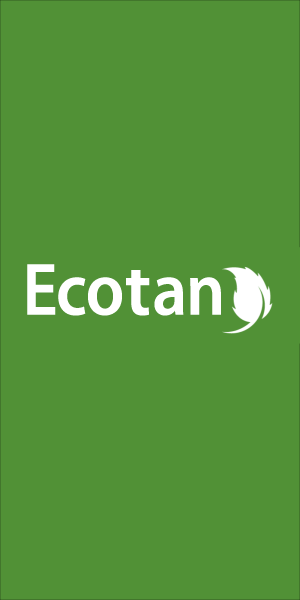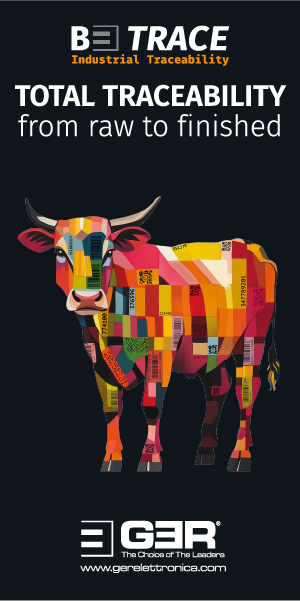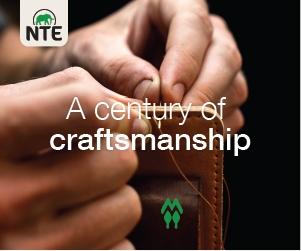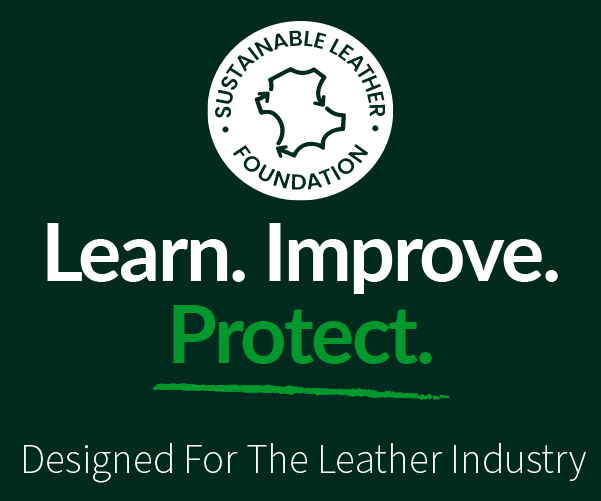Bags of opportunity

After adopting a baby in Ethiopia, a US couple found themselves drawn back to help local women, and their business is now among the most prolific leathergoods exporters in the country.
Martha’s eyesight had deteriorated so rapidly that by age 20, she could only see five inches in front of her, but nobody picked up on the leathergoods worker’s problem until she started making sewing mistakes. At the Ethiopian factory crafting Parker Clay bags, brand founders Ian and Brittany Bentley suggested an eye test, and the resulting glasses made a difference not only to her eyesight and work but to her whole demeanour. “She told me it’s the first time in her life that she had not only been able to see, but had also been seen,” Ian Bentley tells the Leaders of Transformation podcast.
“Now she is confident, she’s always smiling, the transformation is huge. The vision of the company is to see people like Martha thrive.”
In less than 10 years, Parker Clay has grown to become one of the biggest exporters of leathergoods from Ethiopia, according to Mr Bentley, after setting up a factory in the capital, Addis Ababa, and becoming certified as a B Corps. The US couple first travelled to the country in 2011 to adopt a baby girl, but a year or so after returning to the US, decided to sell all their belongings and move back. They had formed a relationship with Ellilta Women at Risk (EWAR), an association that supports women fleeing prostitution and trafficking, and began to look for ways to support the community.
On a shopping trip, they came across a beautiful leather bag in a boutique that had a phone number on the tag. After making enquiries and a trip to the local tannery – where they noted the leather heading to Italy – they realised the combination of high-quality local material and leatherworking skills could provide the employment opportunities the women were so desperate for. With initial investment from friends and relatives in the US, they set up a workshop with sewing machines and local partners, and began to export. “The key has been hiring great Ethiopians who have a lot of experience, who we can trust and can help us to upscale,” says Mr Bentley.
As well as the start-up investors, Parker Clay – named after the couple’s first sons – grows through a crowdfunding model. The public can buy shares in the company, starting at $500, helping to boost growth. “Not every year has been profitable,” admits Mr Bentley, “for instance, we’ve built a factory, which needed investments. At first, we didn’t want to spend too much on marketing as I needed to make sure the supply chain and capacity was solid. Now we know we can expand and fulfil orders.”
Part of the commitment to B Corps certification is working to improve the community and environment, which Mr Bentley says was built into the business from the start. The company operates a zero-waste policy – where leather scraps are used as decoration – and runs a food programme at the factory selling meals at a 90% discount. It helped set up savings accounts for workers as well as financial training in collaboration with a local bank. It operates a tree-planting initiative with local schools and is working on an on-site childcare programme. “We are always looking at ways to improve,” he says. “We were very intentional about every one of those details.”
UN backing
Ethiopia has witnessed massive growth in the past few decades – its population has doubled in 30 years and around half of its 120 million residents are under 18, according to the World Bank. It is home to some of the largest livestock herds in Africa, and its leather industries are supported under various international projects, supported by organisations including the United Nations Industrial Development Organisation (UNIDO).
One such project is LOMI Leather, an association of women entrepreneurs producing leathergoods and garments. LOMI members have benefited from training in design and cutting skills, as well as from the provision of machines for leather cutting, trimming, splitting and softening. “Tanneries sell a minimum of 100 square metres of leather, which is not affordable for an individual entrepreneur,” says Abaynesh Beyene, who employs 25 young people making leather jackets. “We put our money together and share the material. In addition, as a group, we better find market opportunities and buy accessories and tools that we need. We manage big product orders together.”
The support is part of the UNIDO project Upgrading of the Ethiopian Leather and Leather Products Industry, funded by the Italian Development Cooperation and implemented in collaboration with Ethiopia’s Leather Industry Development Institute (LIDI). The project targets SME networks in Addis Ababa involving women and young people who lack access to opportunities and financial resources. In all, 12 networks have received support, totalling 377 enterprises and involving around 3,800 workers.
Another UNIDO project, Leather Initiative for Sustainable Employment Creation, funded by the European Union, is supporting the establishment of a leather manufacturing cooperative with 125 women and young people in Modjo City, 65 kilometres from Addis Ababa. The project is supplying the cooperative with machines, tools and skills training, while the government has provided a manufacturing workshop.
Other more established companies, such as UK-headquartered Pittards, which operates a tannery and leathergoods factories, have well-established businesses in Ethiopia making footwear for brands such as Vivobarefoot and gloves for the export market.
Challenges arise
However, various factors are impeding the leather industry in Ethiopia. The foreign currency retention rule the National Bank of Ethiopia put in place 18 months ago hit tanners hard, with 70% of the foreign currency earned from exports heading back to the government, according to reports. The Ethiopian Leather Industries Association requested the right to access at least half of their export-earning currencies, but their pleas have not been successful so far. Imports of leather chemicals now make up 60% of the production costs, the association told local reporters.
"The sector has several problems, but the foreign currency retention rule is the major one," Redman Bedada, president of the association, said. "Several industries are now closed, and those in operation are working at 30% to 40% of their capacity. We have been warning the officials of the consequences for a long time.”
The Leather and Leather Products Industry Research and Development Centre of Ethiopia claims other obstacles include power shortages, lack of foreign exchange and shortages of chemicals for leather processing. Another potential hurdle for US-headquartered companies could be the fact the US suspended Ethiopia from the African Growth and Opportunity Act AGOA duty-free trade programme over alleged human rights violations and coups at the start of 2022. This March, Ethiopia asked to be readmitted, citing its peace deal with the Tigray People’s Liberation Front.
Social focus
Mr Bentley did not mention any of these issues when questioned about the challenges of setting up in Ethiopia on the podcast, but instead comments learning about new cultures can be “a beautiful thing”. “Cross-cultural business is something that needs to be done with eyes wide open, but we benefited from living there for years,” he adds.
Parker Clay bags are shipped to a California warehouse, so orders can be fulfilled to US customers in a matter of days, and each product contains an estimation of “empowerment hours” – or the amount of time it takes to make a bag, factoring in the time to source materials, logistics and the “whole ecosystem”. “When you invest in women, they reinvest most of their money back into families and communities.”
The company is also vocal about leather’s sustainable and circular characteristics, highlighting it is a by-product from the local food industry and is infinitely better for the environment than ‘vegan leather’ or ‘pleather’: “These may seem like sustainable alternatives but they are often just terms thrown around by the fashion industry to mask the fact that they’re cheaply made from plastics. Their overall impact is truly far more harmful than traditional animal leathers.”
Despite the challenges, Ethiopia is becoming an increasingly popular sourcing destination, as companies realise costs benefits alongside the social realities. Mr Bentley says his workers’ stories resonate with customers, who appreciate knowing they are helping people out of poverty. “Customers want to shop their values, more today than ever,” he says. “It’s really an exciting time to be building this business and seeing the changes in people’s lives.”
Parker Clay employees benefit from training, pensions, healthcare, paid time off, access to transportation to and from work and a laundry service. Credit: Parker Clay































